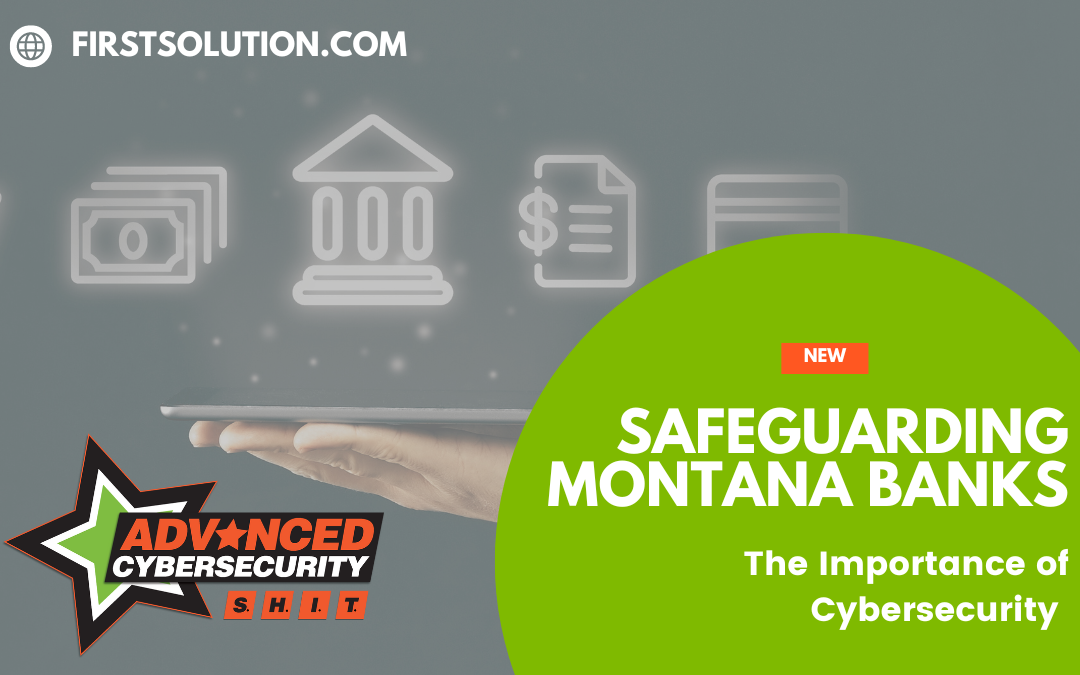
In today’s increasingly digital world, the importance of cybersecurity cannot be overstated, especially for financial institutions such as banks. Montana, with its vibrant banking sector and a growing reliance on technology, must recognize the crucial role that cybersecurity plays in protecting both the financial well-being of individuals and the stability of the state’s economy. This blog post aims to shed light on the significance of cybersecurity for Montana banks and why proactive measures are necessary to safeguard against cyber threats.
The Rising Cybersecurity Landscape
Cybersecurity threats are on the rise, evolving in sophistication and scope. Financial institutions have emerged as prime targets for cybercriminals due to the valuable data and financial assets they possess. Montana’s banks, regardless of their size, are not immune to these threats. From large-scale data breaches to ransomware attacks and phishing attempts, the consequences of a successful cyber attack can be devastating. Not only can it result in substantial financial losses, but it can also erode customer trust and undermine the stability of the entire banking system.
Protecting Customer Data and Privacy
Montana banks have a fiduciary responsibility to protect the personal and financial information of their customers. Breaches in data security can expose sensitive customer data, including social security numbers, account details, and transaction history. Such breaches can have severe repercussions, including identity theft, financial fraud, and reputational damage to both the bank and its customers. By implementing robust cybersecurity measures, including encryption protocols, multi-factor authentication, and regular security audits, banks can fortify their defenses and ensure the safety of customer data.
Maintaining Operational Continuity
Beyond the protection of customer data, maintaining operational continuity is vital for Montana banks. Cyberattacks can disrupt banking services, resulting in prolonged downtime, financial losses, and inconvenience for customers. Denial-of-service (DoS) attacks, in which a bank’s online services are flooded with malicious traffic, can render systems inaccessible, leading to significant business disruptions. Implementing robust backup and disaster recovery mechanisms, as well as developing incident response plans, can help banks recover quickly from cyber incidents and minimize the impact on their operations and customers.
Compliance and Regulatory Obligations
Montana banks are subject to various regulations and compliance standards that govern the handling and protection of financial data. Non-compliance with these regulations can result in hefty fines, legal repercussions, and reputational damage. By prioritizing cybersecurity, banks can ensure adherence to industry-specific standards such as the Gramm-Leach-Bliley Act (GLBA) and the Payment Card Industry Data Security Standard (PCI DSS). Staying ahead of evolving regulatory requirements is crucial for Montana banks to maintain their credibility, mitigate risks, and demonstrate their commitment to protecting customer interests.
Building Customer Trust and Loyalty
In an era where cyber threats are a constant concern, customers place a high premium on the security of their financial information. By proactively investing in cybersecurity measures, Montana banks can inspire trust and foster customer loyalty. Banks that prioritize the implementation of robust security practices, such as real-time fraud detection systems, regular security awareness training for employees, and transparent communication regarding data breaches or potential threats, send a strong message to their customers that their financial well-being is a top priority.
Collaboration and Industry Sharing
Montana banks should recognize the value of collaboration and information sharing within the industry. Sharing intelligence on emerging cyber threats, best practices, and successful defense strategies can collectively strengthen the state’s banking sector against cybercriminals. Engaging in partnerships with cybersecurity firms, participating in industry forums, and leveraging the expertise of external consultants can provide valuable insights and guidance to bolster defenses and stay ahead of cyber threats.
In an era where cyber threats continue to grow in frequency and complexity, Montana banks must prioritize cybersecurity as an integral part of their operations. By investing in robust security measures, complying with industry regulations, and fostering a culture of cybersecurity awareness, banks can protect their customers, maintain operational continuity, and safeguard the stability of the state’s financial ecosystem. Recognizing the importance of cybersecurity is not merely an option but a necessity for Montana banks to thrive in the digital age.
Let's Work Together!
Schedule a discovery meeting with one of our Advance Cybersecurity Experts to discuss how First Call can help you start YOUR Security Transformation!
LET'S WORK TOGETHER!
Schedule a discovery meeting with one of our Advanced Cybersecurity Experts to discuss how First Call can help you start YOUR Security Transformation!

